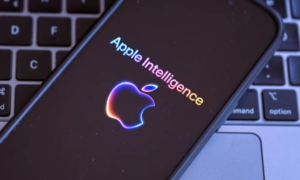Research Shows AI Models from OpenAI Learned by Memorizing Copyrighted Material

OpenAI’s Use of Copyrighted Material in AI Training
Introduction to the Controversy
Recent discussions have brought to light ongoing legal issues involving OpenAI and its training process for various AI models. A study co-authored by researchers from institutions such as the University of Washington, Stanford, and the University of Copenhagen has raised questions about how OpenAI utilizes copyrighted material during its model development.
The core of the controversy revolves around allegations that OpenAI has incorporated copyrighted works—ranging from books to various databases—without proper consent. Authors and programmers claim that their intellectual property has been used unfairly in the development of AI models.
Allegations Against OpenAI
In ongoing lawsuits, many plaintiffs argue that OpenAI’s approach to training AI systems constitutes a violation of copyright law. The tech company has maintained that it operates under the principle of “fair use,” suggesting that its model-building efforts are legally sound. However, those challenging OpenAI assert that there is no explicit allowance under U.S. copyright law that permits the use of content for training AI models.
Claims of Memorization
The recent study introduces the concept of "memorization" by AI models. The researchers examined specific models, including GPT-4 and GPT-3.5, and observed instances where these models appeared to remember phrases and text from well-known literary works, including various fiction books and articles from the New York Times. This memorization raises concerns about intellectual property infringement when the AI reproduces quoted material in its responses.
Insights from the Study
The research highlights certain characteristics referred to as “high-surprisal” terms—words or phrases that stand out more prominently compared to others in a larger dataset. For example, the term "radar" may be categorized as high-surprisal in a context dominated by familiar terms like "radio" or "engine."
Methodology and Findings
The team employed methods to uncover how AI models memorize specific segments of their training data. Their investigation suggested that models like GPT-4 had indeed acquired portions of copyrighted texts during training sessions. Notably, the study found that GPT-4 sometimes mimicked language and phrases from prominent sources, albeit at a lower repetition rate.
Researchers emphasized that these results indicated that contentious and potentially illegal data might have been utilized in developing AI systems. They advocated for models that allow external inspection, encouraging transparency to evaluate the reliability and legality of these AI technologies.
The Call for Transparency and Regulation
The findings from this research underline the need for increased transparency in the way AI models operate, particularly concerning their training datasets. OpenAI has historically pushed for relaxed restrictions regarding the use of copyrighted data in AI training, despite facing scrutiny from various sectors.
The company has entered licensing agreements to mitigate some legal risks but continues to engage with lawmakers on the regulation of training data for AI models. As the conversation evolves, the balance between innovation and protection of intellectual property remains a focal point for companies involved in AI development.
Conclusion
The issue at hand is not merely about legalities; it reflects broader implications for the future of technology and ethical standards in AI training. As OpenAI navigates these challenges, the conversation around copyright, fair use, and technological advancement continues to be crucial in shaping industry standards.






